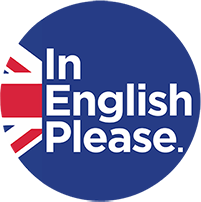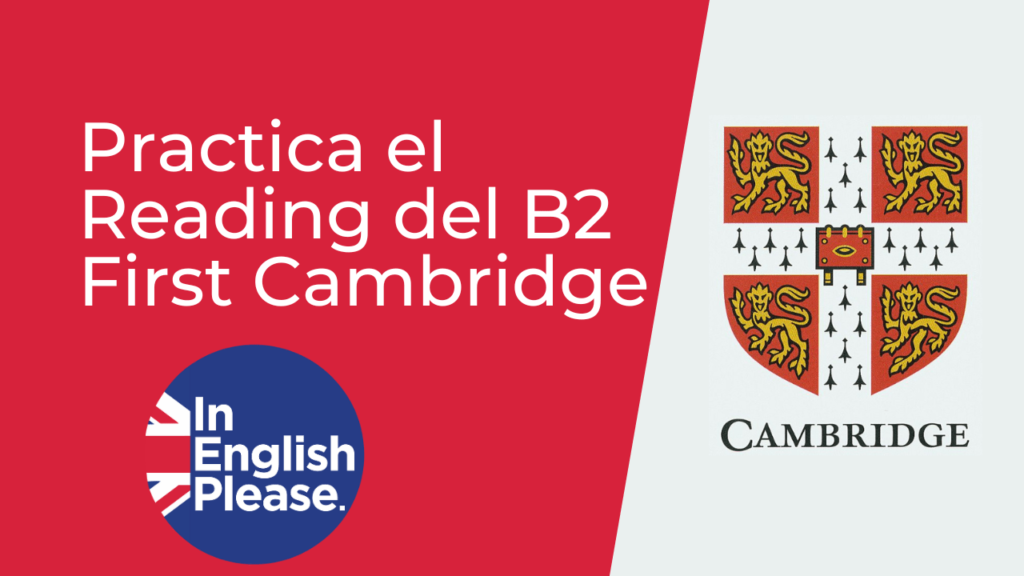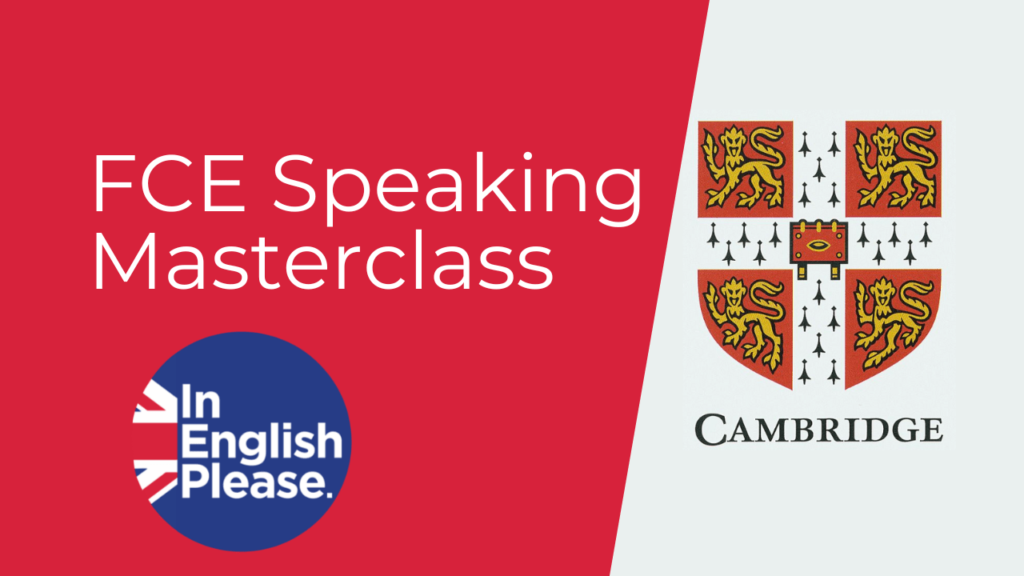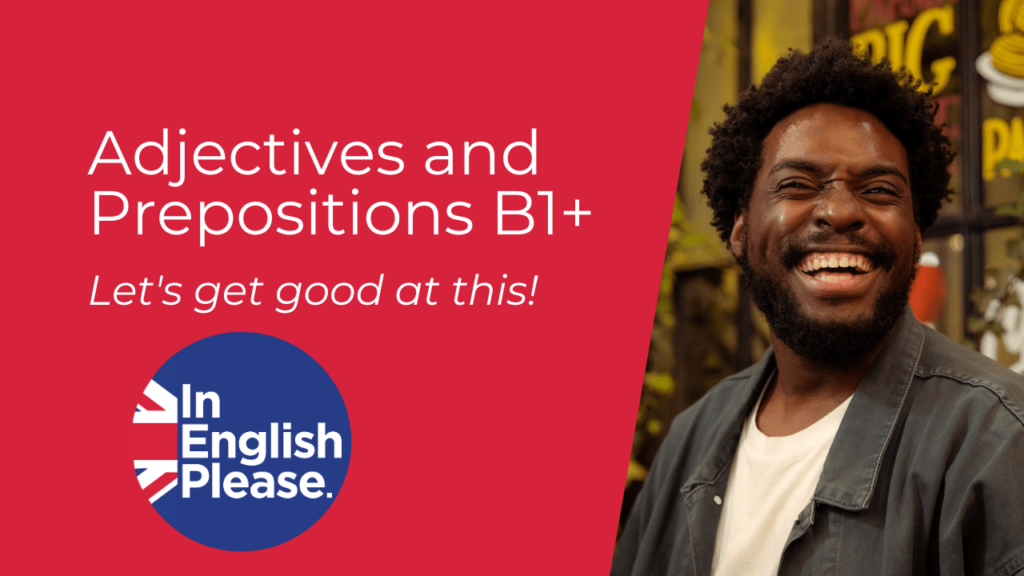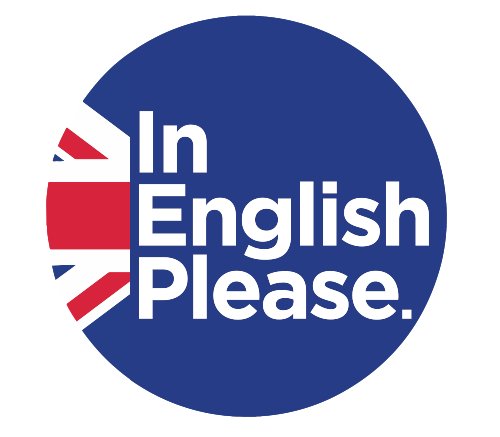
Written by Irene Quesada

Fotos para practicar el Speaking B1 de EOI
Muchos alumnos ahora mismo en España están pensando en cómo practicar la parte del Speaking del examen B1 de EOI y seguramente, a muchos (tú estás incluido), les da cosa la prueba del Speaking ya que no pueden practicar a solas. No te preocupes, don’t worry! Si te estás preparando para superar las pruebas de certificación de la EOI te ayudamos con fotos para practicar la parte del Speaking del B1. Si dudas de tu nivel de inglés, sal de dudas con nuestra prueba de nivel gratuita aquí.
Aquí puedes practicar el monólogo y diálogo del Speaking B1 EOI con preguntas y fotos, ejemplos de examen en PDF y examen resuelto. ¡Vamos!
En este post te vamos a contar:
Preguntas del Speaking B1 EOI
Fotos para describir B1 EOI
Examen resuelto
Vamos a por la mejor nota, ¡te acompañamos!
También puedes preparar el examen con un profesor de inglés. ¡Pregúntanos!
¿Qué preguntas hay en el Speaking B1 de la EOI?
Es muy sencillo. Las preguntas del Speaking B1 consisten en un monólogo (donde hablas tú solo) y un diálogo (donde tienes que hablar con un compañero que te asignarán). El Speaking de la EOI B1 sigue esta estructura:
1) Monólogo:
Aquí tienes unos 3 y 5 minutos para hablar sobre un tema que te propongan. Antes de comenzar a hablar, te darán un tiempo para que pienses lo que vas a decir y organices tus ideas en un papel de forma esquemática. No podrás leerlas, es más para organizar tu mente.
Mira este ejemplo de monólogo del Speaking B1 EOI:
2) Diálogo:
Aquí te darán un tema y tendrás unos 5 minutos para hablar de ello con el compañero que te asignen. Más abajo te damos ejemplos y trucos para mantener la conversación y que no cunda el pánico.
Ejemplos de Speaking B1 EOI
Mira este ejemplo de examen del Speaking B1 de la EOI (de la junta de Andalucía). Basándonos en él, hemos creado simulaciones de ejemplos de examen con fotos para practicar y que veas las diferentes preguntas del Speaking B1 EOI.
Haz click en cada una de las imágenes para descargarlas en PDF:
Examen EOI b1 inglés resuelto – Speaking
Vamos a darte un ejemplo resuelto de la parte del Speaking B1 inglés. Fíjate sobre todo en los conectores y phrasal verbs correspondientes con el nivel y cómo está estructurado el discurso y su coherencia. No tienes que aprenderte todos los phrasal verbs del mundo, te hemos preparado una lista con los phrasal verbs más usados que te servirán en muchas situaciones!
📌 Parte 1 Monólogo -Speaking B1 EOI:
Tomemos el ejemplo 1 como referencia:
You are going to discuss the significance of outdoor activities.
Explain why you think outdoor activities are important nowadays.
Describe the main difficulties you experience while practising outdoor activities.
Share a time when you had a good time (or not so good) practising an outdoor activity.
Monólogo: Ejemplo EOI B1 inglés resuelto
👉 Consejo: para tener un discurso organizado, divide mentalmente el discurso en partes para así asegurarte de que respondes a todo lo que te han preguntado:
1. Importance of outdoor activities:
I think outdoor activities are very important nowadays for a few reasons. First, they help us stay healthy. When we do things like running, hiking, or playing sports, we exercise our bodies and this is good for our heart and muscles. Second, outdoor activities are good for our minds. Being outside in nature makes us feel calm and happy. It can reduce stress and help us feel better if we are sad or worried. Also, outdoor activities often mean spending time with friends or family, and this helps us feel more connected and less lonely.
2. Main difficulties in practicing outdoor activities:
However, there are some difficulties when we try to do outdoor activities. For example, the weather can be a big problem. If it rains or it’s too hot, it’s not nice to be outside. Another problem is finding a good place to do these activities. Not everyone lives near a park or a place where they can run or hike. Also, sometimes we are very busy with school, work, or other things, and it’s hard to find time. Finally, some people might have health problems or injuries that make it difficult to do outdoor activities.
3. Personal experience with outdoor activities
I remember one time when I went hiking with my friends. It was a sunny day, and we were excited to see the views from the top of the mountain. The hike was a bit hard because the trail was steep, but we enjoyed talking and laughing along the way. We saw some interesting birds and plants, which was really nice. When we reached the top, the view was amazing, and we felt very happy and proud of ourselves.
However, on the way back, it started to rain. The path became slippery and we had to walk very carefully. We got wet and cold, which was not fun. But in the end, we were safe, and we still talk about that day as a good adventure. It taught us to check the weather forecast better next time and always be prepared.
Overall, I believe outdoor activities are very important and enjoyable, even if there are some challenges to overcome.

Te recomendamos además que trabajes en la pronunciación, mira estos trucos.
Trucos para el monólogo de la EOI B1:
Damos bastantes clases de EOI con muchos tipos de alumnos, cada uno tiene sus carencias y puntos fuertes. A algunos se les da bien hablar sin ningún tipo de input y a otros no pueden organizarse o son más callados. Las diferencias y distinciones son muchas, pero no importa. Aquí tengo algunos consejos para aprobar el speaking de la EOI, sobre todo para el monólogo.
Consejos y trucos:
- Hazte un plan, no vas a hacer mucho sin un plan y además ¡un plan de qué hacer si te quedas sin mucho más que decir!
- Responde a la pregunta y a cada parte
- Toma tu tiempo, no hay que hacer todo corriendo
- Ten una estructura en tus respuestas tipo: Punto, ejemplo, punto (lo repites y resumes) Es decir, un PEPEjemplo: (pero muy resumido)
👉 Truco! Mira este ejemplo de cómo hacer un PEPEjemplo:
Explain why you think outdoor activities are important nowadays.
Punto: I think outdoor activities are important because we are spending a lot of time indoors, such as at the office or at home.
Ejemplo: For example, I have a friend who spends his whole day at home because he works from home. He wakes up, gets breakfast and then starts to work immediately. Then, after work he often plays games with his friends online for a few hours and finishes his day watching a series with his partner.
Punto: So for this reason, I think people should go out more. People, like my friend, are spending a lot of time at home and I don’t think this is good for their health.
📌 Parte 2 Diálogo – Speaking B1 EOI:
Consejo: Para mantener el diálogo activo, es recomendable añadir una pregunta al final de tu frase, así tu compañero puede continuar fácilmente.
Seguimos con el ejemplo 1 como referencia:
You and your friend are planning a camping trip by a lake and you want to choose the most important equipment, clothes and food to take.
Discuss the different types of tents, camping gear, and amenities you’ll need. Decide together which are the two most important things to bring.
Diálogo: Ejemplo EOI B1 inglés resuelto:
Mira este ejemplo de un diálogo bien equilibrado, que responde a las preguntas que se hacen y cuya gramática y vocabulario es acorde al nivel B1.
|
Student A: Hey, are you ready to plan our camping trip by the lake? Student B: Yes, I’m excited! We need to decide on the equipment, clothes, and food to take. Student A: Okay, let’s start with the tent. What kind of tent should we bring? Student B: I think a tent for four people will be good. It gives us more space. We need one that is waterproof too, in case it rains. Student A: Good idea. Do you think we need a tent with two rooms or just one? Student B: One room should be fine. It’s easier to set up. Student A: Alright, now what about sleeping bags? Student B: We need warm sleeping bags because it can get cold at night. And maybe some sleeping pads for comfort. Student A: Yes, I agree. I checked the weather, and it’s going to be cold. What other camping gear do we need? Student B: We need a portable stove for cooking, a lantern, and a first aid kit. Student A: Don’t forget the cooler for keeping food fresh. What clothes should we take? Student B: We should take warm clothes, like jackets and sweaters, and also some lighter clothes for the daytime. And hiking boots. Student A: Yes, and maybe some rain jackets just in case. What food should we bring? Student B: We can bring some canned food, pasta, rice, and snacks like nuts and fruit. Also, we need water bottles and maybe a water filter. Student A: Sounds good. Let’s decide on the two most important things to bring. I think the tent is the most important. Student B: I agree. And the second most important thing? Maybe the portable stove for cooking? Student A: Yes, the portable stove is very important. So, the tent and the stove are our top priorities. Student B: Perfect. I think we’re ready for our trip! Student A: Yes, I can’t wait! It’s going to be fun. |
Conclusión:
Tienes modelos de exámen
Tienes fotos para practicar elSpeaking EOI
Tienes ejemplos de respuestas para el monólogo y diálogo del Speaking B1 EOI
¿Quieres ayuda extra? Prepara el examen con un profesor de inglés, presencial en Madrid u online desde dónde estés. ¡Pregúntanos!
By the way, no solo somos buenos profesores de inglés sino también somos buenos estudiantes de español. Si ves un fallo en nuestro articulo, abajo nos puedes dejar un comentario con la corrección y la revisamos.
Posts Relacionados
Practica las preposiciones en inglés: guía rápida con ejercicios
Preposiciones en inglés ¿cuáles son? Las preposiciones en inglés son palabras pequeñas pero poderosas que indican la relación entre diferentes elementos en una oración. Estas relaciones pueden referirse a lugar, tiempo, dirección, causa, medio o modo. Es cierto que al...
Aprende 3 modales en inglés B1: Should, Would y Could – ejercicios PDF
Aprende a usar los verbos modales en inglés B1 Hablar correctamente en inglés no solo se trata de aprender vocabulario y estructuras (pero si quieres aquí te dejo algunos artículos para refrescar este contenido como Ejercicios de sinónimos y antónimos en ingles –...
It is done: Ejemplos de pasiva en inglés B2 y C1 – Avanzado
Ejemplos de pasiva en inglés B2 En un nivel B2, pasar de activa a pasiva requiere un conocimiento de gramática más avanzado, así que hemos preparado ejemplos de pasiva en inglés B2, para que te hagas una idea. También te invitamos a que eches un vistazo a nuestro...
¡Manten el contacto!
Acceso a contenido premium
Coming soon
Síguenos
Ven a vernos en Facebook y en YouTube para aprender más
